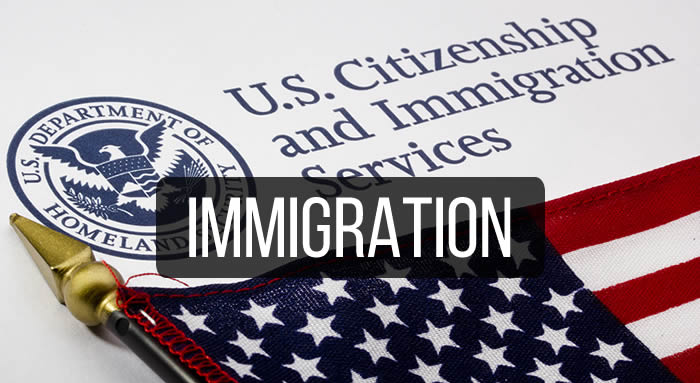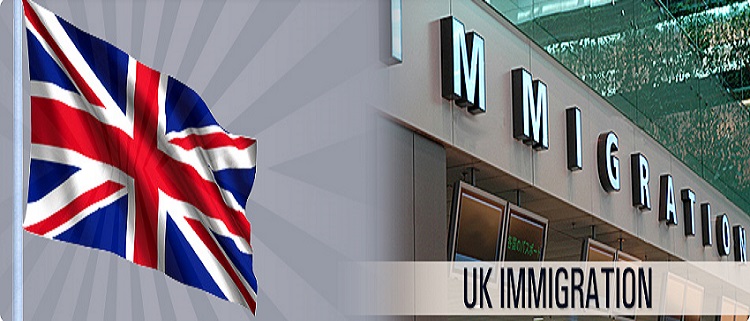South African Government Service information on SA citizenship by naturalization.
Download the relevant application forms online.
South Africa’s immigration policy is embodied in the Immigration Act (No 13 of 2002), which prescribes the requirements which are to be met by an applicant who wishes to immigrate permanently to South Africa.
Who can immigrate to South Africa?
South African immigration law aims to protect the health and security of South Africans, as well as their rights to employment opportunities in the country.
South Africa has a vast reserve of unskilled and semi-skilled workers. Generally, a prospective immigrant to South Africa should not follow an occupation for which there are already sufficient people available to meet the country’s needs. Unskilled and semi-skilled workers, in particular, will not usually be accepted as immigrant workers in South Africa.
Conversely, immigrants who are in a position to contribute to the broadening of South Africa’s economic base will be welcomed. Applications by skilled workers in occupations for which there is a shortage in the country are encouraged – particularly applications by industrialists and other entrepreneurs who wish to relocate their existing businesses or establish new concerns in South Africa.
The Department of Home Affairs Immigration page is telling us that
The Department’s core immigration services duties are
- administering admissions into the country
- determining the residency status of foreigners and issuing permits thereof
- custodianship of refugee affair
- Inspectorate
Policy directives.
These are achieved by issuing the following types of documents:
- Visas
- Temporary Residence Permits (Business permits. Work permits, Corporate permits. Study permits. Exchange permits, Retired persons’ permits, Relatives permits and Medical treatment permits)
- Permanent Residence Permits
- Refugee and asylum papers
South African immigration Requirements.
Because of the need to create job opportunities for South African workers, prospective immigrants should be seriously committed to investing their assets, skills and experience for the benefit of themselves and the people of South Africa.
All applications for permanent residence are considered individually on merit by an independent statutory body, the Immigrants Selection Board. If you wish to immigrate permanently to South Africa, you should be of “good and sound character” and not follow an occupation in which there are already sufficient people available to meet the country’s needs.
Immigration requirements are aimed at individual selection, and all applications for permanent residence are considered on merit by an self-governing statutory body, the Immigrants Selection Board.
South African Immigration categories’
South African Immigration categories are divided into two:
Direct residence (Section 26)
This is issued to foreigners who have been on a work permit for five years and who have received a permanent offer of employment. In general, if a foreigner meets all the requirements, their spouse and children, under 21 will, likewise, qualify for permanent residence.
Residence on other grounds (Section 27)
This includes foreigners who: have a job offer within certain conditions; possess extraordinary skills or qualifications; intend to set up a business in South Africa; those who intend to retire here; refugees, and relatives of a South African citizen.
All immigration applicants older than 21 must submit to a personal interview.
Where do I apply for South Africa
immigration?
In general, you should apply for immigration to South Africa while in your country of residence, and await the outcome of your application before proceeding to South Africa. You should apply at your closest SA office abroad or see the box on the right.
However, you may apply for immigration while in South Africa – at your nearest Home Affairs provincial office – if:
You are in the country on a valid work permit; alternatively, you are married to, or the child of, a South African citizen or permanent resident, and are in South Africa on a valid temporary residence permit; or you are being sponsored for immigration purposes by a blood family member that is permanently and lawfully resident in South Africa and is in South Africa on a valid temporary residence permit; conversely, you have been exempted from the requirement to hold a temporary residence permit.
How long is my permit valid for?
Once you have been granted permanent residence, you need never to apply again. However, you must take up residence in South Africa within a year of being granted permanent residence.
Wiki immigration to South Africa
South Africa has an uncommon demographic profile, marked by a heterogeneous population base as per Wikipedia, social issues brought on by the legacy of apartheid, divisions within ethnic groups, HIV/AIDS and emigration. The Rainbow Nation demography, consequently, plays a prominent role in public policy.
Blacks compose about 79.7% (2007 est.) of the population and represent different ethnic groups, including Zulu, Xhosa, Ndebele, Pedi, Sotho and Swazi, as well as recent immigrants from other parts of Africa (particularly Zimbabwe and Nigeria). Whites compose 9.1% (2007 est), being the descendants of Dutch, French, British, and German settlers who began arriving at the Cape from the late 17th century, immigrants from Europe who arrived in South Africa in the twentieth century, and Portuguese who left the former Portuguese colonies of southern Africa (Angola and Mozambique) after their independence in the mid-1970s. Coloured (8.8%, 2007 est) are mixed-race people primarily descended from the earliest settlers, their slaves, and the indigenous peoples. The remaining 2.4% are categorized as ‘Indian /Asian’, including the descendants of Indian indentured sugar estate workers and traders who came to South Africa in the mid-19th (particularly around Natal), as well as a small Chinese population of approximately 100,000 people.[1]
The 2012 HSBC Expat Experience Report [2] ranked South Africa 9th in their league table based on expat experiences.
Challenges for immigrants
On 12 May 2008, a series of riots started in the township of Alexandra (in the north-eastern part of Johannesburg) when locals attacked migrants from Mozambique, Malawi and Zimbabwe, killing two people and injuring 40 others.[3]
The violence spread to other townships later that week across the Gauteng Province of South Africa with riots reported in several settlements, including Diepsloot, Johannesburg central, Jeppestown, Hillbrow and others.[4] A man was burnt to death near Reiger Park on the East Rand.[5] Police arrested more than 200 people on charges, including murder, attempted murder, rape, public violence and robbery.[4] Armed police used tear gas and rubber bullets to quell rioting in central Johannesburg, attacks on foreigners and looting of foreign-owned shops. The violence then spread to the coastal city of Durban[6]
Criticism also exists in the form of immigrants to South Africa getting upset with the authorities. As of mid-2010, the South African Department of Home Affairs has removed the ability for people to lodge immigration applications locally and regionally, and these are now all sent to what has been nicknamed “The Hub” by immigration practitioners and consultancies. This is an effort to curb the corruption and bribery which was rife in the local Home Affairs offices, and has, to some extent, succeeded in doing so.[7] The Department of Home Affairs has also threatened to remove Immigration Practitioners from the Immigration Act, which would effectively mean that only lawyers or state-appointed immigration officers could represent someone in lodging a permit application, otherwise they would have to submit themselves, and in person. This in the face of the long waiting times to receive most permits. [8] The 16 leading immigration companies of South Africa have teamed up to sue the Department of Home Affairs with the goal to get a best service quality of the department and best processing times for permits.
References
1. Press release & Press Conference of Director General Home Affairs South Africa Mkuseli Apleni about New Changes In South African Immigration Policy
2. South Africa Immigration Act
3. South Africa Immigration Laws
4. South Africa Home Affairs official website
South African immigration law is very tough & complicated. Our FREE eligibility assessment is the first step in finding out if you qualify for temporary or permanent residency in South Africa.
Send us an email and receive your results within 24 hours. Our email id is info@southafricanimmigration.org
South African Immigration is South Africa’s largest independent visa, immigration and relocation agency.
Benefit from the experience of our South African Immigration Experts and get advice now.
We have helped thousands of individuals and companies in their immigration and relocation to South Africa, and we can help you with your South African Visa & Permit.
You can talk with the expert consultants for Home Affairs related issues, contact center is working for international callers & also for people are residing in South Africa.
South African Immigration´s immigration practitioners have been tested and are registered by the Department of Home Affairs.
Disclaimer: South Africa Immigration Service is not an agency of the South African government, nevertheless. Our immigration practitioners are filed by the South African Department of Home Affairs and have been examined. All our services comply together with the Immigration Act of South Africa. Our consultancy services with the compiling of visa and permit applications and our relocation services are unavailable through government channels. The application forms used during the immigration procedure may also be collected free of charge at any Department of Home Affairs office.







